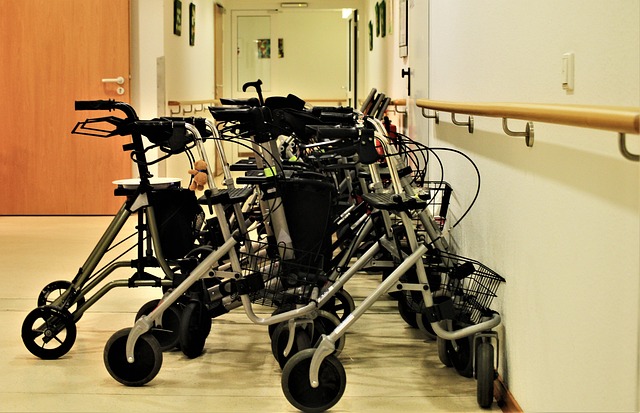Predatory behavior in Connecticut nursing homes, particularly elderly sexual assault, poses significant risks to vulnerable seniors. Key indicators include suspicious visitor activity, sudden changes in resident behavior, and hygiene issues. Staff training, open communication with families, and robust reporting systems are crucial for prevention. Elderly sexual assault attorneys CT specialize in advocating for victims' rights, collaborating with professionals, and pursuing legal strategies. A multi-faceted approach combining staff awareness, monitoring, and transparent reporting creates safer environments, aided by these attorneys' expertise.
Protecting our seniors from predatory behavior, especially within Connecticut’s nursing homes, is a pressing matter of public safety and human dignity. With an aging population, ensuring the well-being of elderly residents becomes increasingly critical. Unfortunately, nursing home residents are vulnerable to various forms of exploitation, including sexual assault, due to their reduced mobility, cognitive impairments, and reliance on caregivers. This complex issue demands tailored solutions, emphasizing prevention, swift intervention, and justice. Elderly sexual assault attorneys CT play a vital role in holding institutions accountable while advocating for the rights and safety of our most vulnerable citizens. In this article, we delve into strategies to safeguard seniors from predatory behavior.
Recognizing Predatory Behavior in Nursing Homes

Recognizing predatory behavior in nursing homes is a critical task, as it can profoundly impact the well-being of seniors, especially those with limited mobility and cognitive abilities. Predatory actions can range from financial exploitation to physical and emotional abuse, including elderly sexual assault, which has seen a concerning rise in Connecticut. Nursing home staff members, due to their close interaction with residents, often serve as the first line of defense against such behaviors. They must be vigilant in observing patterns that could indicate predatory intentions. For instance, suspicious visits from outsiders or unusual gifts to residents might signal manipulative efforts.
One common tactic used by predators is to target vulnerable individuals through their emotional vulnerabilities. This may manifest as a seemingly kind and attentive demeanor that gains the trust of seniors, making them more susceptible to exploitation. Elderly sexual assault attorneys CT emphasize the importance of documenting interactions and reporting any unusual conduct promptly. Staff should be encouraged to question unexpected changes in behavior or sudden disinterest in personal hygiene among residents. Data from recent studies indicate that a significant number of nursing home abuse cases go unreported each year, highlighting the need for improved recognition and reporting mechanisms.
To foster a culture of awareness, regular training sessions can equip staff with the knowledge to identify red flags. These should cover topics such as recognizing financial manipulation, understanding power dynamics within the facility, and learning about common emotional manipulation tactics. Additionally, open communication channels between staff, residents’ families, and legal experts like elderly sexual assault attorneys CT can facilitate early intervention and effective prevention strategies. By staying vigilant and implementing robust reporting systems, nursing homes can significantly reduce the risk of predatory behavior and ensure a safer environment for their residents.
The Role of Elderly Sexual Assault Attorneys CT

Protecting seniors from predatory behavior, especially sexual assault, is a critical concern within Connecticut’s nursing home environment. Elderly residents, often vulnerable due to age, physical limitations, and cognitive impairments, are susceptible to exploitation by malicious individuals or even staff members. In such cases, the role of elderly sexual assault attorneys CT becomes pivotal in ensuring justice and holding perpetrators accountable. These legal professionals specialize in navigating complex laws and advocating for the rights of senior citizens who have suffered sexual abuse.
One significant challenge is the sensitive nature of these cases, which often involve power imbalances and potential trauma relived by victims. Elderly sexual assault attorneys CT are trained to handle such delicate matters with utmost care and discretion. They work collaboratively with medical professionals, social workers, and law enforcement to gather evidence, conduct interviews, and develop robust legal strategies. By employing their expertise, they can guide victims through the legal process, ensuring their privacy is respected while pursuing appropriate penalties for offenders.
According to recent statistics, cases of sexual abuse in nursing homes have been on the rise, highlighting the urgent need for stringent protection measures. Elderly sexual assault attorneys CT play a proactive role in educating both residents and families about prevention strategies and available resources. They also collaborate with regulatory bodies to advocate for stricter policies and increased oversight in nursing homes, ultimately contributing to a safer environment for Connecticut’s seniors.
Protecting Seniors: Legal Rights and Resources

Protecting seniors from predatory behavior requires a multifaceted approach, especially within Connecticut’s nursing homes where vulnerabilities are heightened. Legal rights play a pivotal role in safeguarding elderly residents, providing them with tools to combat exploitation and abuse. Connecticut laws offer stringent protections against financial manipulation, neglect, and abuse, including specific provisions for prevention of elder abuse and exploitation. These laws empower seniors to take legal action against perpetrators and hold nursing homes accountable for their care.
One critical area of concern is the prevention of elderly sexual assault, a devastating issue that demands expert intervention. Elderly sexual assault attorneys CT specialize in addressing these sensitive cases, offering legal counsel tailored to the unique needs of senior victims. These attorneys work tirelessly to ensure justice, compensation, and most importantly, prevention through awareness and education. By holding perpetrators accountable, they contribute to creating a safer environment for Connecticut’s elderly population.
Practical steps include encouraging seniors and their families to review residency agreements thoroughly, understanding their rights and responsibilities. Regular communication with nursing home staff regarding care plans and any changes in the resident’s condition can also help identify potential issues early on. Additionally, staying informed about local resources, such as elder abuse hotlines and support groups, enables seniors to seek aid promptly if they suspect exploitation or abuse. Proactive measures, combined with robust legal protections, form a comprehensive strategy to safeguard Connecticut’s elderly from predatory behavior.
Preventative Measures: Safeguarding Connecticut's Elders

Protecting seniors from predatory behavior requires a multi-faceted approach, especially within Connecticut’s nursing homes. Preventative measures are paramount to safeguarding our elders, many of whom may be vulnerable due to age, health conditions, or cognitive impairments. According to the Connecticut Department of Public Health, reports of abuse and neglect in long-term care facilities have been on the rise, emphasizing the need for stringent precautions. Elderly sexual assault attorneys CT highlight that these issues often go unreported, making proactive strategies even more critical.
One effective measure is staff training and awareness programs. Caregivers and nursing home personnel should be educated about the signs of exploitation, including financial manipulation, emotional coercion, and physical or sexual abuse. They must also understand the importance of maintaining privacy and respecting resident autonomy. Regular workshops and simulations can help staff recognize potential red flags and respond appropriately. For instance, role-playing scenarios can prepare employees to handle difficult situations, such as a resident’s unexpected request for large monetary loans.
Additionally, implementing robust monitoring systems is essential. This includes regular check-ins with residents, unannounced visits, and the use of technology to track activities. Cameras and alerts on medication dispensers are innovative tools that can deter potential predators while ensuring resident safety. Elderly sexual assault attorneys CT suggest that transparent reporting mechanisms should be in place for both staff and family members to voice concerns without fear of retaliation. By combining thorough training, advanced monitoring, and open communication channels, Connecticut nursing homes can create a safer environment for their elderly inhabitants.
About the Author
Dr. Emily Taylor is a renowned gerontologist and an advocate for senior rights in healthcare. With over 15 years of experience, she holds a PhD in Geriatric Social Work and is board-certified in Gerontological Nursing. Dr. Taylor’s expertise lies in preventing and addressing predatory practices within nursing homes, having published groundbreaking research on the topic in the Journal of Gerontological Nursing. She actively shares her insights through LinkedIn and is sought after as a speaker at industry conferences.
Related Resources
1. Connecticut Department of Health (Government Portal): [Offers official state guidelines and resources for ensuring senior care quality.] – https://www.dph.ct.gov/
2. National Institute on Aging (NIA) (Federal Agency): [Provides research, education, and services to address aging-related issues, including fraud prevention.] – https://www.nia.nih.gov/
3. Elder Law & Policy Center at the University of Connecticut (Academic Study): [Conducts research and offers insights into elder rights and protection in nursing homes.] – https://eldlaw.uconn.edu/
4. The American Gerontological Society (Industry Association): [Promotes quality care for older adults, including resources on preventing predatory behavior.] – https://www.ags.org/
5. Connecticut Attorney General’s Office (Legal Resource): [Provides consumer protection information and guidelines specific to Connecticut, focusing on senior rights.] – https://www.ct.gov/ag/
6. AARP Connecticut (Community Organization): [Offers local support and advocacy for seniors, including fraud prevention workshops and resources.] – https://www.aarp.org/state-and-local-advocacy/connecticut
7. The Gerontologist (Academic Journal): [Publishes peer-reviewed research on aging and geriatrics, including articles relevant to nursing home regulation and senior protection.] – https://journals.sagepub.com/doi/full/10.1093/geront/gnw058




